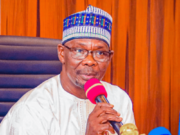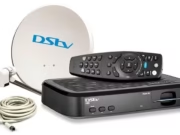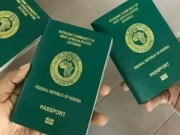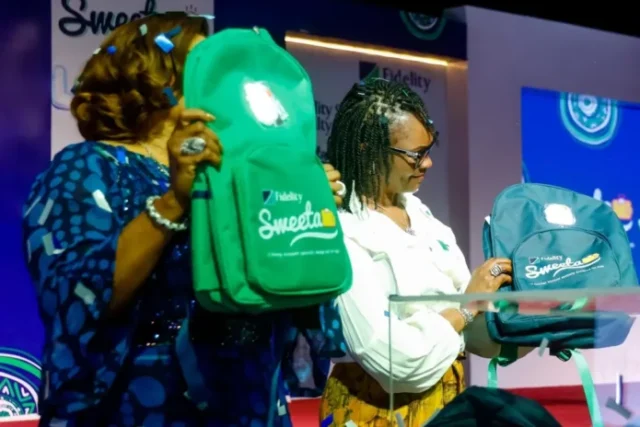In an inspiring display of corporate social responsibility, Fidelity Bank Plc has taken a decisive step toward improving educational access in underserved communities by launching its innovative “Lighting Young Minds” initiative. The bank has donated 1,000 solar-powered school bags to pupils in public primary schools across Ogun State—an intervention designed not just to facilitate nightly study, but to foster hope, safety, and educational opportunity in areas plagued by unreliable electricity.
Table of Contents
Fidelity Bank Meeting a Critical Need
During a well-attended event in Abeokuta, Ogun State, Fidelity Bank Managing Director and CEO Dr. Nneka Onyeali‑Ikpe highlighted the program’s dual purpose: to enhance academic performance after dark and to reduce pupils’ exposure to hazardous lighting sources like candles and kerosene lanterns.
“At Fidelity Bank, we see education not just as knowledge transfer, but as a transformative force—a bridge to opportunity,” Dr. Onyeali‑Ikpe declared. “These solar-powered bags will enable children to study safely at night and inspire them to believe that innovation and resilience can light the path to a better future.”
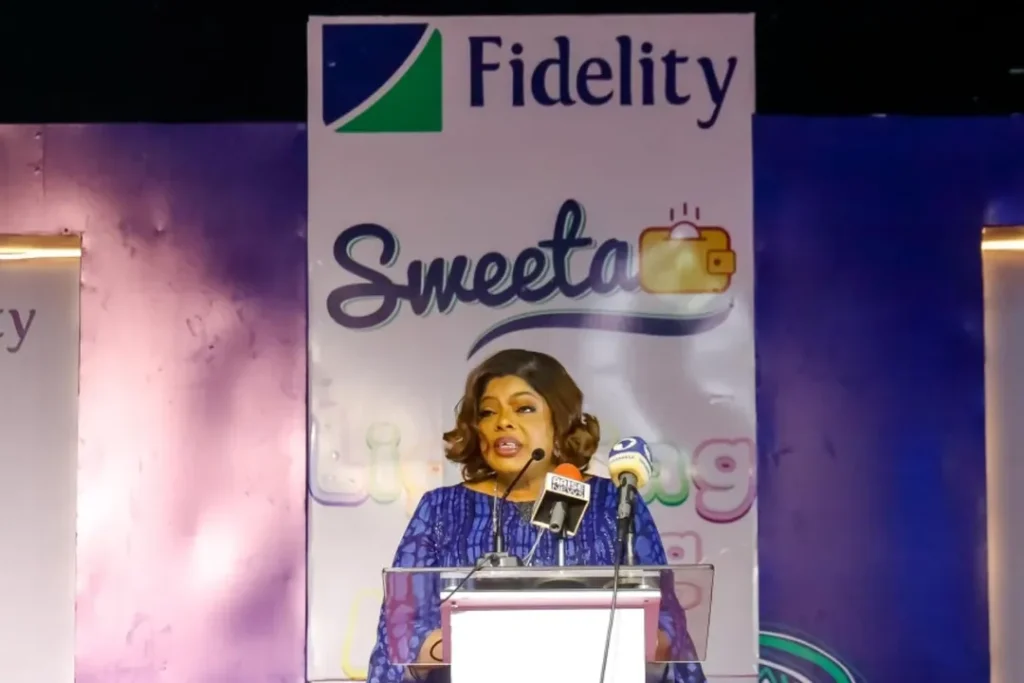
How the Bags Work
Each school bag is fitted with a compact yet efficient solar panel and an integrated LED light system, offering sustainable lighting solutions for students who lack reliable access to electricity at home. Designed to endure daily use, the bags recharge during daylight hours and light up to empower evening learning—an elegant, low‑tech answer to a deep‑rooted problem.
Embedding Solar Solutions in Education
The “Lighting Young Minds” program is part of Fidelity’s broader Supporting Women in Education, Empowerment and Talent Advancement (SWEETA) initiative. Through SWEETA, the bank has already provided over ₦8 billion in school‑fee support, awarded scholarships via the Read2Lead competition to more than 3,000 students nationwide, and offered Back‑to‑School loans to parents. Complementary programs like the Fidelity EduLoan and Green Energy Financing Program support schools with infrastructure upgrades and promote renewable energy solutions.
The solar-bag rollout is a tangible extension of this vision, reinforcing digital‑age education while spotlighting sustainability in everyday school life.
Trusted by Government Leaders
On-site to unveil the initiative, Ogun State’s First Lady, Mrs. Bamidele Abiodun, commended the program:
“This initiative directly enhances learning for children in communities with limited electricity. It’s a brilliant example of how simple, practical innovations can drive profound change—keeping children in school and helping them thrive.”
She also noted that the program aligns with UN Sustainable Development Goal 4, which advocates for inclusive, equitable, and quality education, and urged other corporations to match Fidelity’s leadership.
Why This Matters
In rural areas of Ogun State and beyond, unreliable electricity is one of the biggest barriers to education, forcing students to rely on unsafe lighting that risks fire, respiratory illness, and eye strain. A solar-powered bag addresses multiple priorities—illumination, portability, cost-efficiency—and reframes evening study as a possibility, not a privilege.
More than a clever gadget, the bags symbolise corporate confidence in children’s potential. They tell pupils: “Your education matters, day and night.” And that psychological nudge can make all the difference in a pupil’s academic journey.
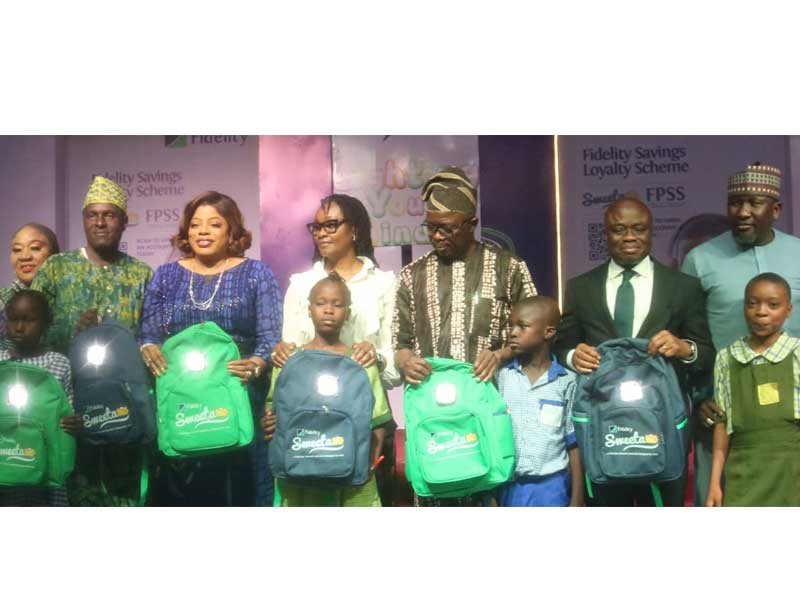
Turning a Gesture into Impact
A common critique of CSR activities is that they prioritise optics over outcomes—temporary gestures with limited long‑term influence. But Fidelity Bank’s impressive track record suggests lasting intent. Its SWEETA initiatives have been sustained, multifaceted, and growth‑oriented, while the bank’s renewable energy commitments anticipate scalability.
Still, success will hinge on follow-through:
- Maintenance: Are there plans for replacing solar panels or LED bulbs as they wear?
- Training: Will teachers and parents learn how to use and care for the bags?
- Tracking outcomes: Will the program track academic gains, improved attendance, or reduced CMD incidents?
Answering these questions surely elevates the initiative from goodwill to a replicable model of community investment.
A Public-Private Collaboration Blueprint
Access to night-time lighting is fundamentally a public utility issue. Yet until universal grid access is achieved, private-sector solutions like this one fill the gap. Fidelity’s effort could serve as a pilot for broader collaborations—with the Rural Electrification Agency, local school boards, and energy providers—to pair portable solar solutions with infrastructural planning.
Imagine coupling the distribution of solar bags to rural classrooms with simultaneous grid extension efforts. That partnership could catalyse national progress in education and access.
Building Momentum & Raising the Bar
While the initiative has earned immediate praise—with news outlets like ThisDay Live and Nigerian NewsDirect highlighting the July 4 launch in Abeokuta and the donation of 1,000 solar-powered bags—its true long-term value will depend on consistent follow-through.
Still, the visibility it has generated is undeniably powerful. The “Lighting Young Minds” launch drew attention from government officials, sparked community celebration, and received broad media coverage—a powerful trifecta that sets a new standard for competitors, encourages parents, and influences policymakers. It underscores that when done right, corporate social responsibility isn’t just charity—it’s transformative leadership.
What’s Next: For Fidelity & Beyond
Here’s where the future lies:
| Next Steps | Description |
|---|---|
| Monitoring & Reporting | Publish data on how many bags remain functional, hours of use, and student performance. |
| Scaling Up | Expand to other states with similar needs. |
| Forming Alliances | Team up with educational NGOs, energy firms, and development agencies for impact research. |
| Curriculum Integration | Use the bags to spark STEM clubs, renewable-energy workshops, or solar-powered reading nights. |
Fidelity Bank’s CSR move does more than light lamps—it ignites minds. But its true legacy depends on how well it trails light into classrooms, homes, and policy dialogues.
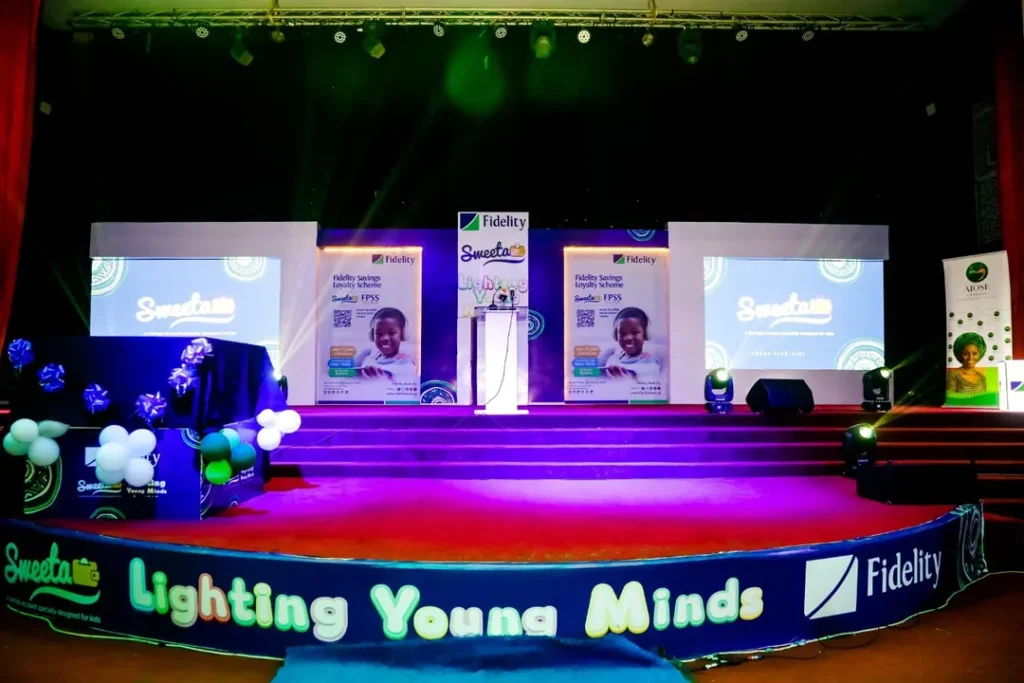
About Fidelity Bank Plc
Founded in 1995, Fidelity Bank Plc is one of Nigeria’s premier commercial banks, serving over 10 million customers through 255 local branches and an international presence with a UK subsidiary. Known for excellence in digital transformation, MSME banking, and sustainable finance, the bank has earned accolades such as the 2024 BusinessDay BAFI Award for Digital Transformation and the Euromoney SME Banking award.
Conclusion
The unveiling of 1,000 solar-powered school bags is more than a CSR headline—it’s a statement. It says that innovation can be simple but deeply consequential. It says that learning cannot wait for the grid. And it says that corporations, communities, and governments can co-create solutions now.
If schools remain adequately lit six months from now, and students’ grades reflect that light, then “Lighting Young Minds” will shine as more than intervention—it will shine as inspiration. It might even chart a new course for what CSR should look like in Africa: empathetic, measurable, and enduring.
Join Our Social Media Channels:
WhatsApp: NaijaEyes
Facebook: NaijaEyes
Twitter: NaijaEyes
Instagram: NaijaEyes
TikTok: NaijaEyes



